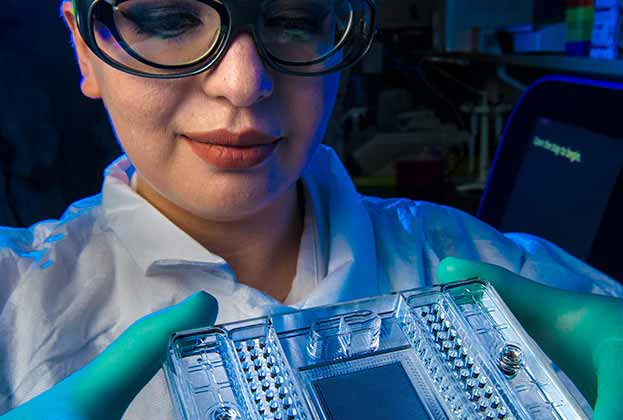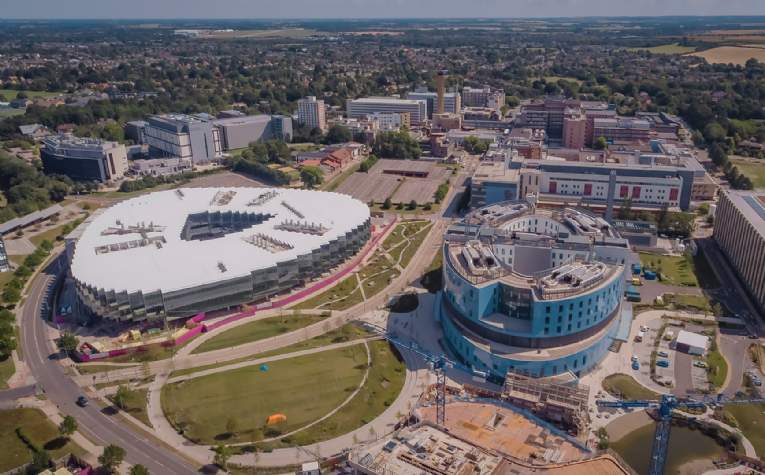Germany leads Europe as the top market for investment into Research & Development (R&D) by pharma companies and is home to global leaders in the field, including Bayer, Boehringer Ingelheim, and Merck KGaA.
Within the country, science and innovation activities are geographically dispersed. With 19 universities ranked in the top 200 universities globally for providing life science education, and 14 world-leading hospitals, Germany benefits from a pool of top talent and clinicians which has allowed centres of excellence to develop across the country. Indeed, the Global Innovation Index recognises Germany has 10 clusters in the top 100 globally, with Cologne and Munich as the two largest clusters. One to watch is Berlin which moved up four places last year to 40th globally. One of the key drivers is the Berlin University Alliance, the consortium of four Berlin-based universities – Freie Universität, Humboldt-Universität, Technische Universität and Charité – Universitätsmedizin – which creates an ecosystem for Berlin as a world-class research area and an opportunity for businesses to draw on talent.
The Berlin Senate made the decision to develop Berlin to become one of the leading regions in the health sector of Germany and Europe several years ago and together with neighbouring state Brandenburg, established the “Berlin-Brandenburg Health Region” master plan. Today, the region hosts several life science parks such as Wissenschafts und Technologiepark, Adlershof and Innovationspark Wuhlheide.
Germany’s capital is one of the most vibrant cities in Europe, known for tech and start-ups, and is home to both entrepreneurial and established firms. Office/life science rents begin at €15, with newer developments obtaining higher rents from c. €25 per sq m/month, with the latter more achievable in new developments closer to the city centre.
One of the largest recent transactions is the temporary relocation of the Robert Koch Institute, a German federal government agency and research institute responsible for disease control and prevention, who relocated to allow refurbishment of their previous premises, taking 10,500 sq m of office in Berlin’s Gerichtstraße 27. A number of large global and start-up firms across biotech, foodtech, agritech, medtech, R&D and pharma have a strong presence in the city, including Parexel, B. Braun and the HQ of Pfizer GmbH and Bayer AG Pharmaceuticals, confirming the strategic importance of Berlin for this sector.
Going forward, we expect to see several opportunities for repurposing former industrial sites in and around the city into mixed use developments, with a significant proportion allocated for laboratories. This will be driven by the continued convergence between technology and scientific innovation, and growing support from public authorities. Such developments will offer dynamic lab spaces where innovative firms can grow into market leaders within the sector. Examples of such upcoming large developments include FU HUB, due to complete next year, and Luxwerk, due to complete in 2025. Berlin has exciting opportunities for new and established firms entering the science and innovation sector in the emerging city ecosystem.
Further information
Contact Emily Colquhoun or Sarah Thorley
What's next for Boomtown Berlin?
Real estate in Berlin, Toronto, Paris and Madrid most resilient to climate change, says Savills

.jpg)
.jpg)


.jpg)

.jpg)
.jpg)

